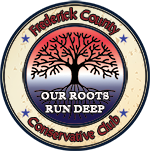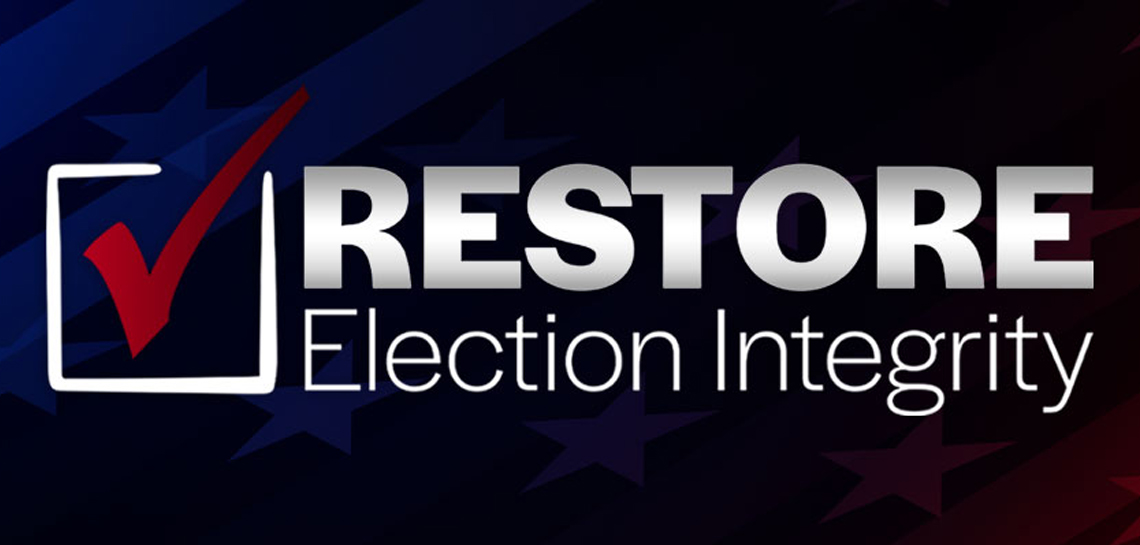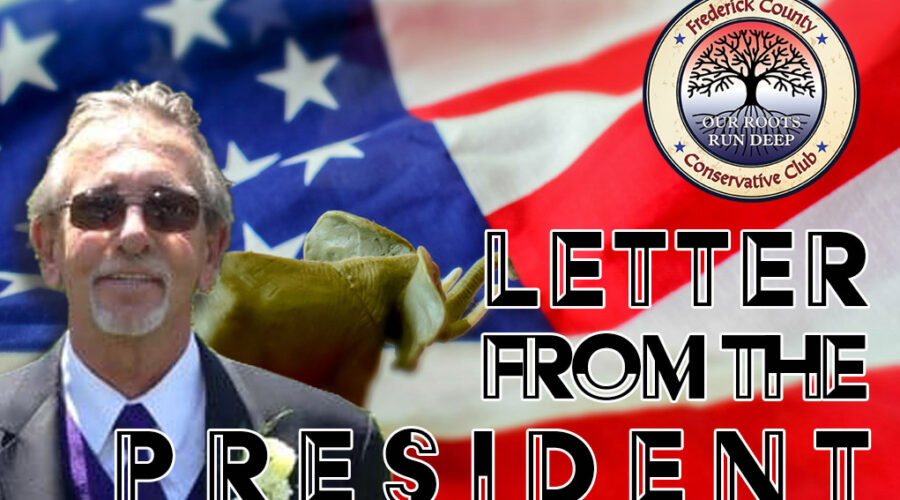Stop H.B.1 & S.B.1 The (Anything But) ‘For The People’ Act
The Democrats are racing to pass H.R. 1, the “For the People Act”. This bill has many egregious provisions including virtually eliminating any restrictions on vote-by-mail and significantly reducing the role states play in federal elections. This bill also represents a massive assault on our First Amendment right to free political speech. Please tell your representative that H.R. 1 is not the solution! America needs for election security and protecting voter rights. Contact your Representative HERE
Take Action Now:
Stop H.R. 1: Unconstitutional Federal Takeover of Elections
Please phone your Senators (202-224-3121) and ask them to vote NO on H.R. 1, because it would enable an unconstitutional federal takeover of congressional elections. Use the above information for additional talking points, if desired. Then, please use the link to send an email to your senators with the same message. Contact your U.S. Representative and Senators
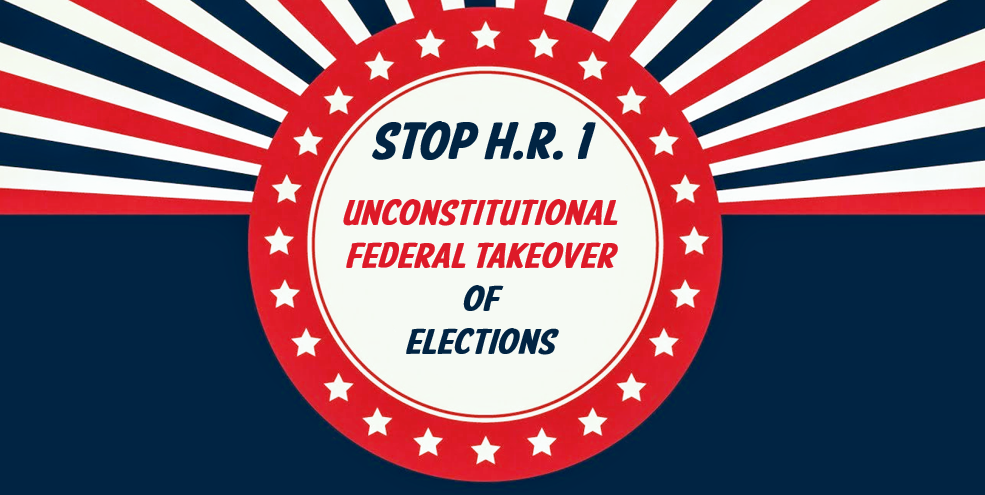
URGENT: Democrats in Congress are seeking to pass a draconian and unconstitutional election bill that would federalize American elections and decimate election integrity.
H.R. 1, sponsored by John Sarbanes (D-Md.) and co-sponsored by Nancy Pelosi (D-Calif.) and Zoe Lofgren (D-Calif.), was introduced on January 4, 2021, immediately after start of the 117th Congress. As the bill number suggests, the bill is a top priority for Congressional Democrats. Additionally, now that Democrats control the House, Senate, and White House, a possibility exists that this bill could pass and be enacted.
Unconstitutional Provisions
Is H.R. 1 Constitutional? The obvious answer for anyone familiar with the U.S. Constitution and the Federalist Papers is a resounding “No,” because there is no grant of power given to the federal government to simply take over elections.
This bill’s supporters would likely disagree with that claim and quote Article I, Section 4 of the U.S. Constitution as justification, which says:
The times, places, and manner of holding elections, for Senators and Representatives, shall be prescribed in each State by the legislature thereof, but the Congress may at any time by law make or alter such regulations, except as to the places of choosing Senators.
To the casual observer, this could reasonably appear to be a general grant of power to Congress to take over and regulate elections nationwide, but it’s not.
Of course, the first clue that this isn’t a general grant of power for ongoing operations can be seen in its placement. It is not among the 18 specifically enumerated powers listed in Article I, Section 8 where one can find grants of power for routine ongoing operations of the federal government, such as coining money, establishing post offices, etc.
This provision was in the U.S. Constitution primarily in case a few large states refused to hold congressional elections, thereby weakening the Congress or perhaps even depriving Congress of the ability to act for lack of a quorum. It was also possible that some states would be unable to hold elections due to invasion. While this did not happen during the War of 1812, it came close to happening in such states as Maryland, where the British attacked Fort McHenry. Had the British succeeded in their attack on Fort McHenry, it could have been possible that the State of Maryland would have become sufficiently disabled that it could not have conducted that year’s elections without support from the federal government or perhaps neighboring states.
An explanation of the intent of Article I, Section 4 can be found in the Federalist Papers, No. 59, written by Alexander Hamilton:
They have reserved to the national authority a right to interpose, whenever extraordinary circumstances might render that interposition necessary to its safety.
Hamilton explained further:
Suppose an article had been introduced into the Congress empowering the United States to regulate the elections for the particular States, would any man have hesitated to condemn it, both as an unwarrantable transposition of power and as a premeditated engine for the destruction of the State governments?
This wording of Article I, Section 4 was hotly debated when the U.S. Constitution was being ratified because the Anti-Federalists saw the dangers it might lead to. The Anti-Federalists suggested an amendment to clarify the discretion with which the Congress was to restrain itself from using Article I, Section 4 as an excuse for an electoral takeover. Number 16 of their proposed amendments said:
That Congress shall not alter, modify, or interfere in the times, places, or manner of holding elections for senators and representatives, or either of them, except when the legislature of any state shall neglect, refuse, or be disabled, by invasion or rebellion, to prescribe the same.
The Anti-Federalists’ Amendment 16 was never passed because the intent as explained in the Federalist Papers, No. 59 was considered clear and sufficient at the time, and its intent was respected by Congress until the middle 1960s. Looking back, it appears that Anti-Federalist Amendment 16 should have been passed to keep the federal government from interfering with state elections based on political whim.
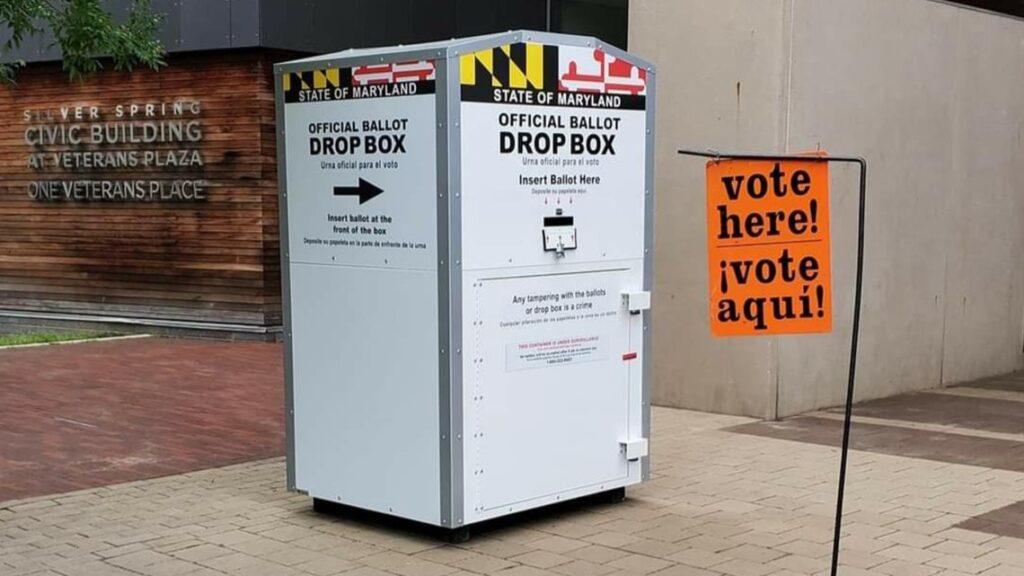
Last, but not least, H.R. 1 would require states to establish “independent redistricting commissions” that would end gerrymandering. Not only is this, once again, an unconstitutional federal overreach, but it would violate the delegation of election authority to legislatures in accordance with Article I, Section 4.
Bad Provisions for Elections
Beyond the blatant unconstitutionality of H.R. 1, the bill has a number of provisions that, even if they were constitutional, which they are not, are so bad for elections that this bill should be rejected by Congress and anything like it should be rejected at the state level as well.
Section 1001 of H.R. 1 would implement Internet voter registration. American elections have already suffered severe degradation in the area of voter registration lists caused by the National Voter Registration Act of 1993, aka the Motor Voter Act — lists that were intended to be used to prevent fraudulent voting. Allowing Internet voter registration would take a bad situation and make it worse, basically providing an open door for fraudulent voting. Congress should not only defeat H.R. 1, but also repeal Motor Voter, something Republicans promised when they ran for Congress in 1994, but set aside once they were elected.
Section 1012 of H.R. 1 would implement automatic voter registration. Section 1012 of the bill (page 48) explains it clearly:
“Automatic registration” means a system that registers an individual to vote in elections for Federal office in a State, if eligible, by electronically transferring the information necessary for registration from government agencies to election officials of the State so that, unless the individual affirmatively declines to be registered, the individual will be registered to vote in such elections.
If you think Motor Voter has caused problems, just consider the dangers of automatic voter registration, especially with H.R. 1’s buried requirement that it be done via electronic transfer of data. How fast can one computer send bogus data to another computer? All that and no paper trail of the voter registration as they are processed? Section 1012 is seriously bad for honest elections.
Section 1031 of H.R. 1 would force the states to implement same-day voter registration. Most states have traditionally implemented a deadline for registering new voters, typically about a month prior to an election, in order to give election officials enough time to properly process the applications and be certain they are genuine. This important election integrity measure would be tossed out the window if H.R. 1 passes.
Section 1201 of H.R. 1 would prohibit voter caging. The term “voter caging” sounds like like a horrible act of torture, but what the bill says is:
(1) the term ‘voter caging document’ means—
(A) a nonforwardable document that is returned to the sender or a third party as undelivered or undeliverable despite an attempt to deliver such document to the address of a registered voter or applicant; or
(B) any document with instructions to an addressee that the document be returned to the sender or a third party but is not so returned, despite an attempt to deliver such document to the address of a registered voter or applicant, unless at least two Federal election cycles have passed since the date of the attempted delivery;
This provision in H.R. 1 would greatly reduce verification of voter registration lists. This is something done with voters every two years in Texas when voter cards, which are good for two years, are sent to the voters and those that are undeliverable are returned to the county elections office. As bad as Section 1201 is, it could be easily amended to make any form of voter registration verification illegal and that would be even worse.
Section 4201 is entitled “The Honest Ads Act.” While few would argue against the concept of honesty in political advertisements, monitoring ads is not allowed as a function of the federal government. This section of the bill is short on details and probably marks just the beginning of what could be greatly expanded into an unconstitutional federal ministry of truth in political advertising that would rival Germany’s Reichsministerium für Volksaufklärung und Propaganda.
The Wisdom of Alexander Hamilton
This bill, which would essentially accomplish a federal takeover of elections in this country, is quietly moving forward in Congress and public awareness needs to be raised that such a dangerous bill has already been passed by the House and that it needs to be defeated in the Senate. Alexander Hamilton put it best when he said as previously quoted in this article:
Suppose an article had been introduced into the Congress empowering the United States to regulate the elections for the particular States, would any man have hesitated to condemn it, both as an unwarrantable transposition of power and as a premeditated engine for the destruction of the State governments?
He was talking about bills such as H.R. 1.
(This alert is adapted from the article, “HR 1: Blueprint for an Electoral Takeover,” at The John Birch Society.)

Background Information
H.R. 1 is Speaker Nancy Pelosi’s signature piece of legislation to rig the election system in favor of Democratic politicians by undermining America’s electoral process.
Under H.R. 1, massive amounts of elections-related power would be transferred from the states to the federal government. The bill interferes with the ability of states and their citizens to determine qualifications for voters, to ensure the accuracy of voter registration rolls, to secure the integrity of elections, to participate in the political process, and to determine the district boundary lines for electing their representatives.
This massive centralization of power into the hands of incumbent lawmakers is D.C. politicians’ way of trying to make sure the game is rigged in their favor. But politicians already in Washington should not be choosing who goes to Washington—voters should!
The end goal of H.R. 1 is clear—to enshrine into law dubious electoral practices that enable and encourage fraudulent behavior, such as ballot harvesting, false voter registrations, duplicate voting, and ineligible voting.
H.R. 1 contains many provisions that are unhelpful, unnecessary, and unconstitutional. Here are just a few of the terrible policies contained in H.R. 1:
Funds political campaigns with taxpayer dollars — H.R. 1 uses taxpayer money to create a six-to-one match on political contributions up to $200. This would force Americans to spend millions of dollars to fund the campaigns of candidates they are politically opposed to.
Allows candidates to take a salary from their campaigns — Senators and representatives are already paid a salary for their work in Congress. H.R. 1 would allow politicians to take a second salary from their political campaigns—campaigns that would be funded by your taxpayer dollars. This creates a perverse situation where taxpayers are providing politicians with two salaries!
Requires political non-profits to disclose donors — This provision is not about transparency, but giving militant Leftists the names and addresses of conservative donors. Leftist activists have repeatedly shown their willingness to dox conservatives, threaten their families, and pressure employers into firing them. H.R. 1 would further empower this dangerous cancel culture.
Sabotages state voter ID laws — When arriving at the polls, voters will not be required to show ID and can simply sign a statement in which they claim to be who they say they are. This undermines many states’ voter ID laws, which were enacted to combat impersonation fraud, voter registration fraud, duplicate voting, and voting by ineligible individuals, such as illegal aliens.
Mandates same-day registration — States will be required to immediately register a person to vote upon request, even on the day of an election. With no buffer-period to verify personal information, this provision enables voter fraud.
Automatically registers ineligible voters — States will be required to automatically add to voter registration rolls every person—regardless of voter eligibility—who partakes in certain government programs, such as receiving welfare or obtaining a driver’s license. Other provisions of H.R. 1 then restrict the ability of states to verify eligible voters and remove ineligible voters from voter registration rolls. This provision will automatically enroll ineligible voters such as illegal aliens.
Unconstitutionally requires states to restore the ability of felons to vote — Upon release from prison, every felon would immediately be restored the ability to vote. The 14th Amendment to the Constitution allows states to restrict voting rights to those who have participated in “rebellion, or other crime.” States have the constitutional authority to decide when or if to restore that right, as long as they do so in a manner that is not racially discriminatory. H.R. 1 would attempt to unconstitutionally overrule the 14th Amendment with a statute.
Violates the First Amendment — H.R. 1 deters political free speech by inserting a provision that makes it a criminal offense to provide “materially false” information that will “impede or prevent” someone from registering or voting. This provision is so vague that it would likely interfere with free speech and other legitimate activities.
Requires ballots be counted outside of the voter’s precinct — This removes the integrity of the local government to verify voter rolls and oversee elections and gives the power to count votes entirely to the federal government.
Creates unaccountable redistricting committees — Currently, congressional district lines are drawn by state governments that are accountable to their constituents. Allowing unelected officials to determine congressional districts is a nakedly political ploy to draw more Democratic districts.
Alters Federal Election Commission into a partisan organization — Currently, the FEC has six members (three from each party), preserving its bipartisan nature. H.R. 1 would reduce the number to five, giving one party a majority and the opportunity to weaponize the FEC for their party’s benefit.
Talking Points
- H.R. 1 would federalize our election processes, which are currently run by the states — This is D.C. politicians’ way of trying to make sure the game is rigged in their favor. Politicians already in Washington should not be choosing who goes to Washington—voters should!
- Helps Liberals in Elections — H.R. 1 is designed to fund, elect, and maintain liberals in Congress, it even allows for using taxpayer dollars to fund candidates.
- Removal of Redistricting Power — Under this bill, the power to draw congressional districts would be given to an unelected third-party.
- Automatic Registration of Ineligible Voters — H.R. 1 interferes with states’ abilities to determine qualifications for voters and destroys the accuracy of voter registration rolls.
- No Accountability for Vote Counting — Destroys the sanctity of the election process and endangers our democracy by requiring ballots to be counted outside the county’s precinct.
- Felon Voter Registration — Upon release from prison, felons are automatically allowed to register as voters.
- Unchecked Voter Identification — States will be required to register voters on the day of elections and instead of requiring voters to bring ID to the polls, H.R. 1 allows for people to simply “sign a statement” confirming identification. With no buffer-period to verify personal information, this provision could easily lead to voter fraud.
- Paid Salary out of Campaign Funds — Allows candidates to be paid a salary out of their campaign funds…the same campaign funds that would now be funded with taxpayer dollars. Taxpayers already pay Congressmen a salary—but now politicians want to double-dip!
Call Notes
Hi, my name is [FIRST NAME] and I’m a constituent from [CITY AND ZIP CODE]. I’m calling on [MEMBER OF CONGRESS] to oppose H.R. 1.
H.R. 1 is supposedly the “For the People Act,” but a more appropriate title would be the “For the Politicians Act.”
Here are three reasons why I want my representative to vote “NO” on H.R. 1:
- The bill would give my taxpayer dollars to politicians to fund their reelection campaigns. Under no circumstances should taxpayer money be used to fund political careers.
- H.R. 1 would also allow candidates to be paid a salary out of their campaign funds…those same campaign funds that would now be funded with taxpayer dollars. Taxpayers already pay Congressmen a salary—but now politicians want to double dip!
- H.R. 1 would federalize our election processes, which are currently run by the states. This is D.C. politicians trying to make sure the game is rigged in their favor. Politicians already in Washington should not be choosing who goes to Washington—voters should!
There are many more reasons to oppose H.R. 1, but I’ll just leave you with these three.
I call on [MEMBER OF CONGRESS] to vote “NO” on H.R. 1.
Thank you for passing along my message. Have a good day.
Social Posts
(Remember To Insert The Social Handle Of Your Member)
Tweet This:
Nancy Pelosi’s H.R. 1 would give taxpayer dollars to politicians’ re-election campaigns. The American people should not be forced to support the campaigns of politicians they oppose! [MEMBER]
Tweet This:
H.R. 1 would federalize our election processes, which are currently run by the states. Politicians already in Washington should not be choosing who goes to Washington—voters should! [MEMBER]
Tweet This:
H.R. 1 is deceptively titled the ‘For the People Act.’ A truer name would be the #StealElectionsAct
Tweet This:
.[MEMBER], H.R. 1 sets a dangerous precedent that strips states of their election oversight and includes far-left policies that Americans like me do not support. Please vote against H.R. 1. #NOTForThePeopleAct
Tweet This:
H.R. 1 would force states to allow same-day voter registration which opens the door for excessive fraud. [MEMBER] please do not support this anti-democratic bill. #StealElectionsAct
Tweet This:
.@SpeakerPelosi cares more about helping felons vote than she does about securing the border. Oppose #HR1 #NOTForThePeopleAct
Please contact your representative to urge them not to vote for H.R. 1 and to work in a bipartisan manner to address the issues of voting rights and election security.

